Premium Only Content
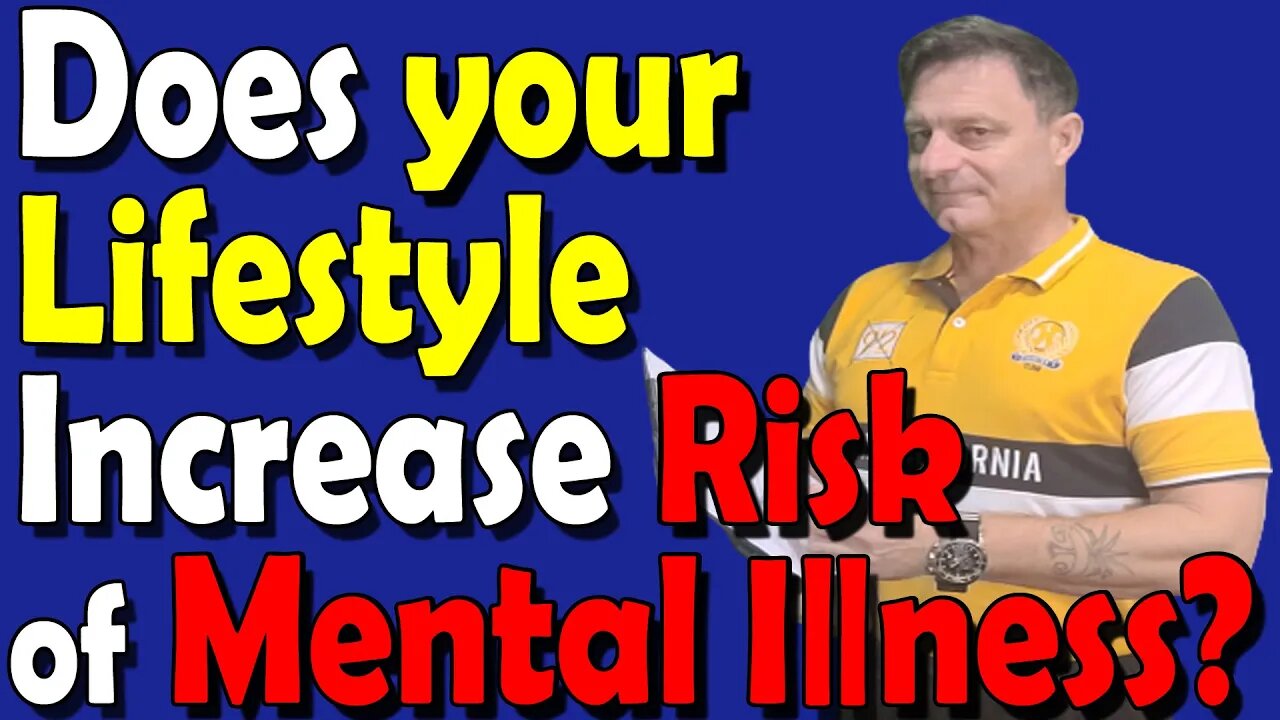
Can a Night Owl Become an Early Bird to Reduce the Risk of Depression/Schizophrenia
are you an early bird or are you a night owl? Being one of the two has now been shown to have negative effects your general wellbeing and does not protect against depression.
Renue by Science 10% Discount Code: MYNMN (https://renuebyscience.com/?rfsn=5692699.331801&coupon-code=MYNMN)
Renue by Science 15% Subscription Service Discount Code: MYNMNSUB
DoNotAge.org 10% Discount Code: MYNMN (https://bit.ly/2VBDgNt)
I hope you enjoy my content and find it interesting or informative, if so, please consider supporting the channel by using one of the links below:
*Buy me a Kofi: https://ko-fi.com/mynmnexperiment
*Patreon: https://bit.ly/3hhfjl5
*SubscribeStar: https://bit.ly/3psYo23
My Current Anti-Aging Protocol:
• 1.5 grams of NMN (https://bit.ly/3c2Fxt8)
• 1.5 grams of Trans-resveratrol (Tue, Thu & Sat) (https://bit.ly/3yxeqy2)
• 500mg Metformin
• 1.5 grams of TMG (https://bit.ly/3oe1Ted)
• 5,000 IU (International Units) of vitamin D3 (https://bit.ly/3P32hYH)
• 120 mcg (micrograms) of vitamin K2 (Mk 7) (https://bit.ly/3PhkBgn)
• 250mg Magnesium (L-Threonate) (https://bit.ly/3O4pZ5o)
• 200mg high molecular weight hyaluronic acid (https://bit.ly/3P0Z4c2)
• 2,400mg of Fisetin, on the 1st, 2nd & 3rd of each month (https://bit.ly/3P2rSB0)
• 2,400mg of Quercetin, on the 1st, 2nd & 3rd of each month (https://bit.ly/3IzulAy)
• 81mg of aspirin (https://bit.ly/3uFjtem)
• 600mg DIM
Links:
https://www.nature.com/articles/s41380-021-01157-3
https://www.nature.com/articles/s41467-018-08259-7
People whose sleep patterns go against their natural body clock are more likely to have depression, and lower levels of wellbeing, according to this new largescale study.
Research led by the University of Exeter, which was published in the journal Molecular Psychiatry, also found the most robust evidence to date that being genetically programmed to be an early riser is protective against major depression, and improves overall wellbeing.
The researchers suggest this may be because society is set up to be more aligned with early risers, through the standard 9-5 working pattern.
The team built on previous research which mapped 351 genes linked to being an early riser, or a night owl.
They used a statistical process called ‘Mendelian Randomization' to examine whether these genes were causally associated with seven mental health and wellbeing outcomes, including major depression
The study used data on more than 450,000 UK adults from UK Biobank's biomedical database and research resource. As well as genetic information, participants also completed a questionnaire on whether they were a morning person or an evening person.
This earlier research that was published in Nature Communications, suggested that being genetically programmed to rise early may lead to greater well-being and a lower risk of schizophrenia and depression.
This study was conducted in 250,000 US-based research participants from 23andMe, a company that provides private genomic analyses, and 450,000 people in the UK Biobank study.
All participants were asked if they were a "morning person" or an "evening person", and their genomes were analysed to look at which genes they had in common which may influence their sleep patterns.
Professor Mike Weedon, of the University of Exeter Medical School, who led the research for the first study said "This study highlights a large number of genes which can be studied in more detail to work out how different people can have different body clocks. The large number of people in our study means we have provided the strongest evidence to date that 'night owls' are at higher risk of mental health problems, such as schizophrenia and lower mental well-being, although further studies are needed to fully understand this link."
Lead author of the first study Dr. Samuel E. Jones, of the University of Exeter Medical School, said "The discovery of this fundamental body clock mechanism in the brain recently won the Nobel Prize for medicine...however, we still know very little about whether or not your body clock influences your risk of disease. Our work indicates that part of the reason why some people are up with the lark while others are night owls is because of differences in both the way our brains react to external light signals and the normal functioning of our internal clocks."
DISCLAIMER: This video and description contain discount codes, which means that if you use the code, I will receive a small commission.
FAIR-USE COPYRIGHT DISCLAIMER
Copyright Disclaimer Under Section 107 of the Copyright Act 1976, allowance is made for "fair use" for purposes such as criticism, commenting, news reporting, teaching, scholarship, and research. Fair use is a use permitted by copyright statute that might otherwise be infringing. Non-profit, educational, or personal use tips the balance in favor of fair use. #sleep #sleepy #Insomnia
-
 9:59
9:59
My Longevity Experiment
5 months ago $0.15 earnedWhy Skipping these 5 Supplements Leads to Serious Health Problems in your 50’s & 60”s
150 -
 LIVE
LIVE
Dr Disrespect
7 hours ago🔴LIVE - DR DISRESPECT - PUBG - 5 CHICKEN DINNERS CHALLENGE!
2,447 watching -
 57:56
57:56
Candace Show Podcast
7 hours agoHarvey Speaks: The Project Runway Production | Ep 1
61.9K31 -
 LIVE
LIVE
LFA TV
1 day agoEurope’s Relationship With America Is Over | TRUMPET DAILY 3.3.25 7PM
132 watching -
 LIVE
LIVE
Quite Frankly
4 hours ago"European Deth Pact, Blackout Data Breach, More" ft. Jason Bermas 3/3/25
535 watching -
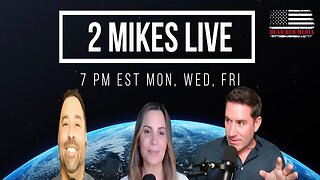 LIVE
LIVE
2 MIKES LIVE
1 hour ago2 MIKES LIVE #187 Deep Dive Monday!
107 watching -
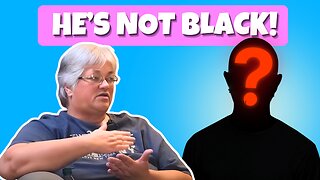 44:25
44:25
CatfishedOnline
3 hours agoRacist Lady Shocked After Sending Money to a Nigeria Romance Scammer
3.34K2 -
 56:45
56:45
VSiNLive
2 hours agoFollow the Money with Mitch Moss & Pauly Howard | Hour 1
30.9K -
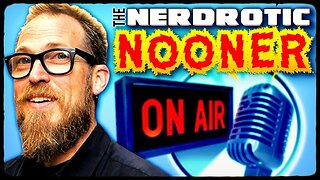 2:28:18
2:28:18
Nerdrotic
6 hours ago $3.97 earnedOscars Aftermath | Super Chat Square Up - Nerdrotic Nooner 469
42.5K13 -
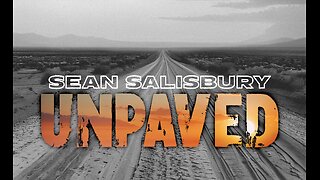 1:09:41
1:09:41
Sean Unpaved
7 hours ago $4.00 earnedUnpaved
50.4K4